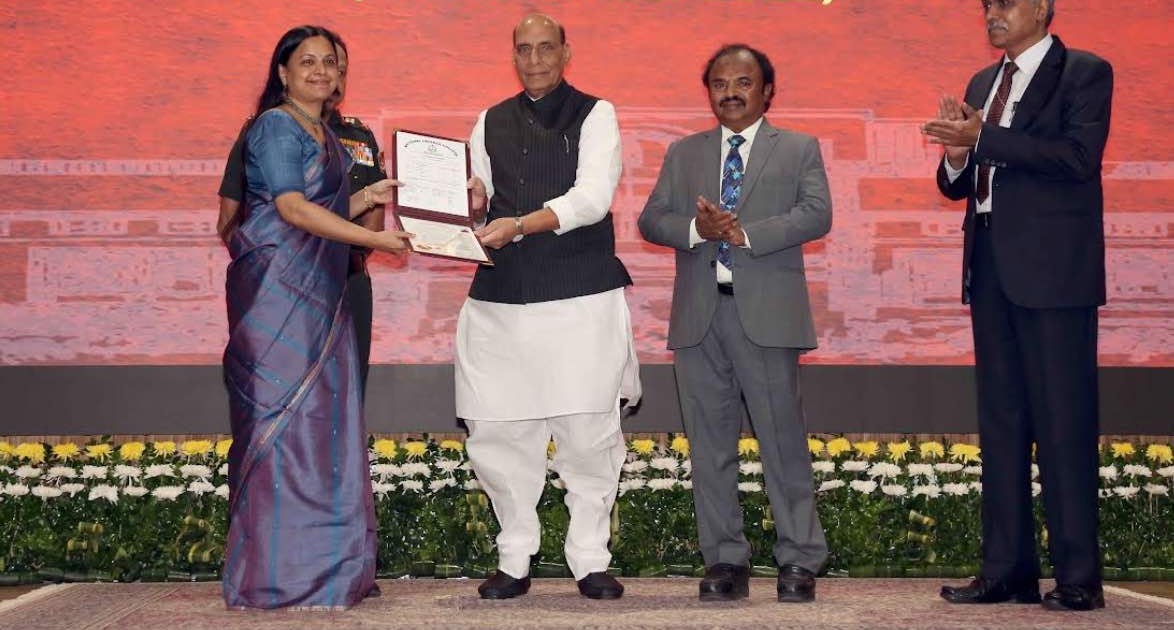
Although India has active borders with China and Pakistan and insurgencies in Jammu, Kashmir and Manipur, Rajnath focused on non-traditional threats rather than hardline military threats.
By Vikas Gupta
Trade Standard, Nov 11, 22
In a security environment where the government rarely places defense policy in the public domain and where successive governments have failed to create a national security strategy, Defense Minister Rajnath Singh delivered a convening speech on Thursday during the graduating class of the National Defense College (NDC) in Delhi.
These institutional discourses, especially those delivered at military training institutions such as the NDC, are carefully analyzed by defense analysts around the world, looking for indications of strategic policy. Today’s NDC speech was no exception.
The most striking observation that defense analysts have come to is that although India has active borders with two hostile neighbors – China and Pakistan – and is fighting longstanding insurgencies in Jammu, Kashmir and Manipur, the Minister of Defense chose to focus almost entirely on non-traditionals. threats rather than harsh military threats.
Rajnath Singh called for concerted efforts by the international community to counter “serious” emerging threats such as cyberattacks and information warfare.
Highlighting the narrowing gap between internal and external security, Rajnath said the new dimensions of ever-evolving threats make them difficult to categorize. He said that terrorism, which generally falls under the category of internal security, is now increasingly seen as an external security threat, since the training, funding and arming of these organizations have been assured since the beginning of the year. outside the country.
The Minister of Defense described the vulnerability of critical infrastructure to cyberattacks as “a big concern”, with energy, transport, telecommunications, critical manufacturing industries and interconnected financial systems being vulnerable to these threats.
Highlighting another non-traditional threat, he said “information warfare” has the potential to threaten a country’s political stability. This was now done by shaping the opinion and perspective of the masses through the organized use of social media and online content generation platforms.
“The deployment of information warfare was most evident in the ongoing conflict between Russia and Ukraine. Throughout the conflict, social media has served as a battleground for both sides to spread competing narratives about the war and portray the conflict on their own terms,” Rajnath said, identifying social media as the main distribution channel. .
The defense minister said the conflict in Ukraine illustrated how the ripple effects could negatively impact the entire world. Together, Russia and Ukraine export almost a third of the world’s wheat and barley, but this conflict had prevented cereals from leaving the “breadbasket of the world”, leading to food crises in Africa and Asia.
Rajnath said India was also facing an energy crisis, with the Russian-Ukrainian war leading to disruption of international energy supply, increasing the cost of importing energy.
Rajnath Singh reaffirmed India’s belief in a “multi-aligned policy”, which envisaged diverse engagements with multiple stakeholders, so that everyone’s concerns could be taken into account. He called it the only path to shared responsibility and prosperity.
“A strong and prosperous India would not be built at the expense of others…India does not believe in a world order where a few are considered superior to others. It is for this reason that when we associate with a nation, it is on the basis of sovereign equality and mutual respect,” Rajnath said.
It was aimed at officers of the Indian armed forces, civil services and friendly foreign countries during the 60e National Defense College (NDC) Convocation Ceremony.






